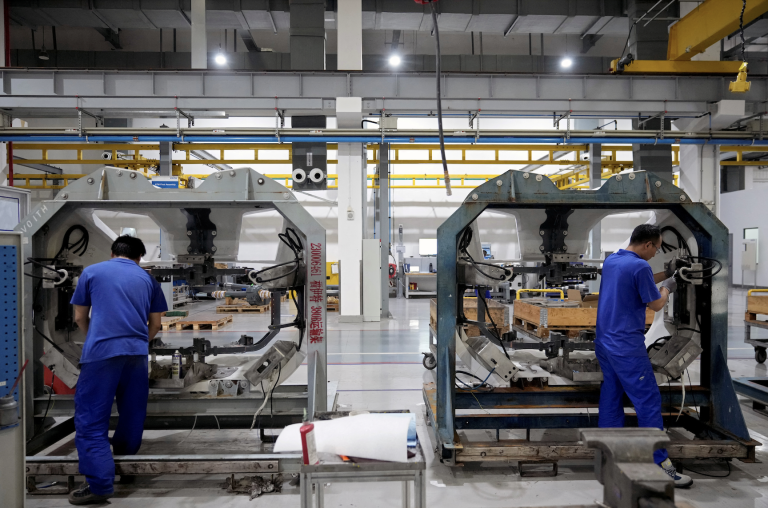BEIJING – China’s factory activity contracted at a faster pace in November, an official survey showed on Wednesday, weighed down by COVID-19 curbs and softening global demand, underscoring the increasing pressure faced by the world’s second-largest economy.
The official manufacturing purchasing managers’ index (PMI) stood at 48.0 against 49.2 in October, the lowest reading in seven months, according to data from the National Bureau of Statistics (NBS). Economists in a Reuters poll had expected the PMI to come in at 49.0.
Separately, the non-manufacturing PMI, which looks at service sector activity, fell to 46.7 from 48.7 in October, also the lowest reading in seven months.
The 50-point mark separates contraction from growth on a monthly basis.
China’s economy, already under pressure from a property slump and weakening global demand for Chinese goods, experienced a broad slowdown in October, adding to concerns about growth in the last quarter of 2022.
Success
You are now signed up for our newsletter
Success
Check your email to complete sign up
Chinese authorities this month rolled out a flurry of policies to prop up the struggling economy, including reserve requirement ratio cuts and COVID fine-tuning measures, while loosening financing curbs to rescue the property sector.
The securities regulator earlier this week lifted a ban on equity refinancing for listed firms in the latest support measure for the cash-squeezed real estate sector. Markets cheered the move, with shares and bonds of Chinese property companies rising.
China also was roiled by rare street protests across many cities over the weekend due to the stringent COVID-19 measures.
Analysts from Nomura said in a report on Monday areas and facilities representing some 25.1% of China’s total GDP were now under lockdown, up from the previous peak value of 21.2% recorded in April, when Shanghai was under a full-scale lockdown.
The official manufacturing PMI largely focuses on big and state-owned firms. The private sector Caixin manufacturing PMI, which centers more on small firms and coastal regions, will be published on Thursday.
Reporting by Liangping Gao and Ryan Woo; Editing by Muralikumar Anantharaman














